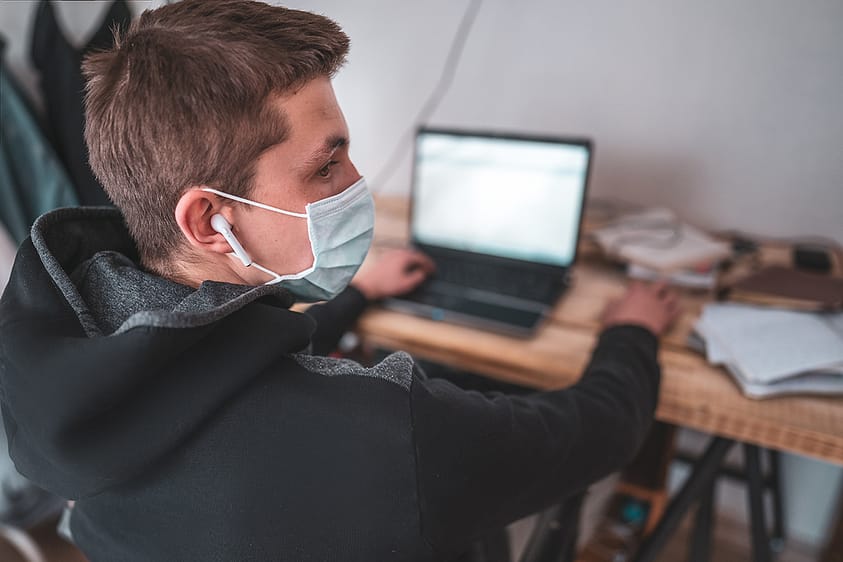Seemingly in the blink of an eye, COVID-19 changed our world in dramatic ways. And though we’ve made progress against the pandemic, the impact is still revealing itself. However, there is one area to keep a close watch on: the mental health of adolescents.
Because the public health response of COVID-19 required businesses to shut down, we’ve all experienced enormous economic fears. The uncertainty of this pandemic is challenging for adults, but it’s even harder for adolescents.
Understanding how COVID-19 affects adolescent mental health is an important step in ensuring that your loved one receives the mental health treatment they need and deserve. Contact Foothills at Red Oak at 866.300.5275 if your teen needs mental health treatment.
COVID-19, Adolescents, and Mental Health
While there is not yet long-term data on the subject, common sense suggests that the global pandemic and related lockdowns will have a significant negative impact on the mental health of adolescents.
The impact could be in either of two directions. The pandemic may cause adolescents to begin experiencing mental health challenges for the first time or make existing symptoms worse.
Experts identify several different categories that might put adolescent mental health at the highest risk:
- Post-traumatic stress disorder
- Depression
- Anxiety disorders
- Episodes of grief
- Attention-deficit hyperactivity disorder
- Eating disorders
The only way through this during COVID-19 is to pay attention to your loved one. Be ready to act if they show signs of stress.
Supporting Your Adolescent
Recognizing and addressing the moods of your young person takes vigilance and trusted, open communication. Symptoms to look out for include any unusual physical complaints, social withdrawal, problems at school, or self-criticism. It’s also critically important to watch for signs of substance abuse, as we discuss below.
Find the right time to open a discussion, but be a careful listener. Make sure they know they are loved and supported, and that their feelings are normal. Share your feelings and experiences, but not too much detail. You want to convey as much as possible that everything is OK within the family.
If warranted, seek mental health treatment from a qualified facility in your community. Foothills at Red Oak specializes in the needs and concerns of adolescents involved in substance abuse and mental health.
The Risk of Co-Occurring Disorders
One crucial area to watch in adolescent mental health during COVID-19 is the growing risk of co-occurring disorders. A co-occurring disorder is when an individual battles both addiction and substance abuse at the same time.
Adolescents are particularly susceptible to co-occurring disorders. One way this occurs is by seeking relief from anxiety, depression, or related disorders by using drugs or alcohol. Done enough times, this can lead to addiction and substance abuse. The mental health condition continues in the background at the same time, multiplying problems.
Mental health treatment protocols for co-occurring disorders call for an integrated approach. Rather than treating the substance abuse and mental health issues as separate challenges, they are treated together simultaneously, one right after the other.
During COVID-19, you can expect mental health issues for everyone to be on the rise, and particularly with adolescents.
Treating the Effects of COVID-19 at Foothills at Red Oak
COVID-19 has proven to be a seismic shift for people young and old. Even if someone does not contract the virus, they still face uncertainty and anxiety that can lead to mental health challenges. Dealing with the global pandemic has proven especially unsettling for adolescents. With mental health issues comes the risk of substance abuse. If this fits someone in your family, consult with Foothills at Red Oak. We treat boys between the ages of 14 and 17 for substance abuse, mental health challenges, co-occurring disorders, and more. Find out more by contacting us for an initial confidential consultation today by calling us at 866.300.5275.





